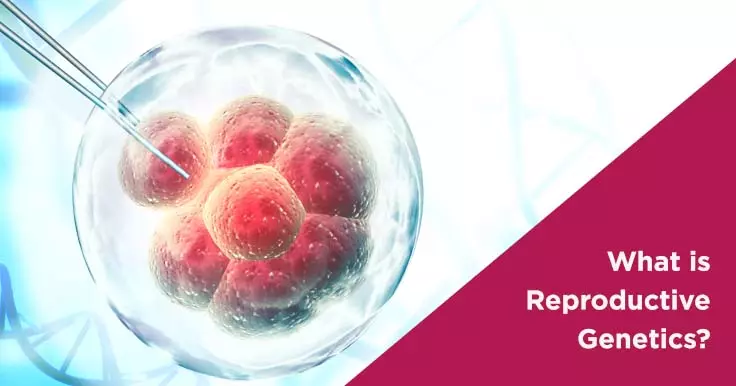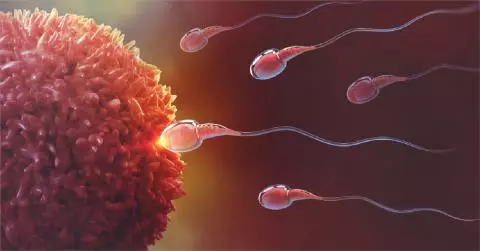What Is Genetic Testing? Understanding PGD and Genetic Screening

It is a known fact that genetics plays a vital role in the field of medicine. Reproductive Genetics is a branch of medical science that tries to understand how genetics contribute to the reproductive process - both assisted and natural.
In this article, we discuss the effect of genetics on the reproduction process as well as fertility:
Reproductive Genetics and Infertility
One of the major areas of study in reproductive genetics is infertility. There are heterogeneous reasons behind male and female infertility. The genetic factors being one of them can cause chromosomal abnormalities or structural abnormalities. Let us discuss below the effects of genetic factors on both female and male infertility:
The sexual disorders caused due to genetic factors that lead to female infertility are:
- Fragile X syndrome is caused due to the permutation that ranges between 55 and 200 repeats in the FMR1 gene. It can lead to ovarian insufficiency and premature ovarian failure.
- Blepharophimosis, ptosis, epicathus inversus syndrome happens due to mutations in the FOXL2 gene. Symptoms include small palpebral, fissures and gonadal insufficiency.
- Galactosemia is caused due to the mutation of DNAH5ation on the GALT gene that leads to developmental delay and ovarian insufficiency.
- Premature ovarian failure, ovarian dysgenesis happens due to BMP15 mutations on chromosome Xp which leads to primary ovarian insufficiency
Genetic Factors and Male Infertility
Following are the disorders caused due to genetic factors that may lead to male infertility.
- Kallmann syndrome occurs due to the mutation in the KAL1 leading to asthenozoospermia or reduced sperm motility.
- Cystic fibrosis occurs due to CFTR gene mutation and causes obstructive azoospermia and congenital absence of vas deferens (CBAVD).
- Primary ciliary dyskinesia happens due to the mutation of DNAH5 gene that leads to asthenozoospermia.
- Myotonic dystrophy occurs due to DMPK1 gene mutation and can cause OAT progressive
- Kennedy syndrome is caused due to an expanded CAG trinucleotide repeat sequence in the androgen receptor gene leading to leading to oligospermia or azoospermia.
- Noonan syndrome is majorly caused by the mutations in the PTPN11 gene that leads to cryptorchidism and delayed puberty resulting in progressively deteriorating sperm quality.
- Aarskog-Scott syndrome can lead to an acrosomal defect which is caused by the mutation of FGD1
- Globozoospermia is caused to the mutation of three genes namely SPATA16, PICK1, and DPY19L2. This leads to round-headed spermatozoa lacking an acrosome.
- Macrocephalic sperm leads to polyploidy and multiflagellar sperm and is caused by the mutation of AURKC
- Astenospermia is caused to the CATSPER gene mutation that may lead to sperm immotility
Genetic Factors and Diagnosis
Infertility caused due to genetic factors can be diagnosed in the following ways:
Clinical History
At first, the doctor will take a detailed history of the past ailments or diseases, surgeries, medications used, etc. will be taken.
Family History
Since there is a high risk of passing the genetic condition to the next generation, taking a detailed family history helps the doctors in understanding molecular characterization of genetic conditions by next-generation sequencing and microarray analysis.
Genetic Screening
- Diagnostic testing: Molecular or cytogenetic testing is often done to confirm a genetic diagnosis.
- Carrier testing: This testing is done in consanguineous couples, newborn screening tests, to diagnose a recessive or X-linked disorder in a child or adult to screen the heterozygous state of an autosomal recessive, X-linked gene or a balanced chromosome rearrangement.
- Presymptomatic screening: This test is done in individuals who are at the risk of developing any genetic conditions. By this test they can know whether they are gene carriers or not.
- Childhood testing: This diagnostic testing enables the child and the parent to understand the genetic basis of the condition and take appropriate treatments.
- Non-invasive prenatal diagnosis: This test helps in establishing the fetal genotype. Fetal sex, RhD status, paternally inherited single gene and down syndrome can be determined with this test.
- Invasive prenatal diagnosis: The tests involved in this type of diagnosis are amniocentesis, chorionic villus sampling and fetal blood sampling procedures.
How Reproductive Genetics Help Treat Infertility
Preimplantation Genetic Diagnosis (PGD)
PGD enables couples to have their own child who is unaffected by any genetic conditions. This is a treatment cycle that offers testing for over 200 single-gene and chromosomal disorders. It is seen that the success rate of a non-carrier female pregnancy with PGD has increased.
It involves the analysis of embryonic tissues taken from the embryos formed using assisted reproductive technology (ART) by a polar body, blastomere or trophectoderm biopsy. Only the unaffected embryos are transferred into the uterus to continue pregnancy thus growing into a child free from any genetic conditions.
Fetal Stem Cell Therapy
This involves in utero stem cell transplantation which enables in treating inherited hematological, metabolic and other early-onset genetic diseases.
Prenatal Gene Therapy
Prenatal Gene Therapy aims to correct a genetic defect before tissue damage has occurred. This is achieved by delivering genes to tissues and cells in the prenatal stage.
 Infertility Counselling
Infertility Counselling Female Infertility Treatment
Female Infertility Treatment Andrology Treatment
Andrology Treatment Fertility Enhancing Surgeries - Female
Fertility Enhancing Surgeries - Female Fertility Enhancing Surgeries - Male
Fertility Enhancing Surgeries - Male Endoscopy Treatment
Endoscopy Treatment IUI Treatment
IUI Treatment IVF Treatment
IVF Treatment ICSI Treatment
ICSI Treatment Advanced IVF Solutions
Advanced IVF Solutions Embryology
Embryology Vitrification Egg, Embryo, Sperm Freezing
Vitrification Egg, Embryo, Sperm Freezing Preimplantation Genetic Testing (PGT)
Preimplantation Genetic Testing (PGT) Donation Program Embryo / Egg / Sperm
Donation Program Embryo / Egg / Sperm Self-cycleTM IVF
Self-cycleTM IVF

 Self-cycleTM IVF
Self-cycleTM IVF









